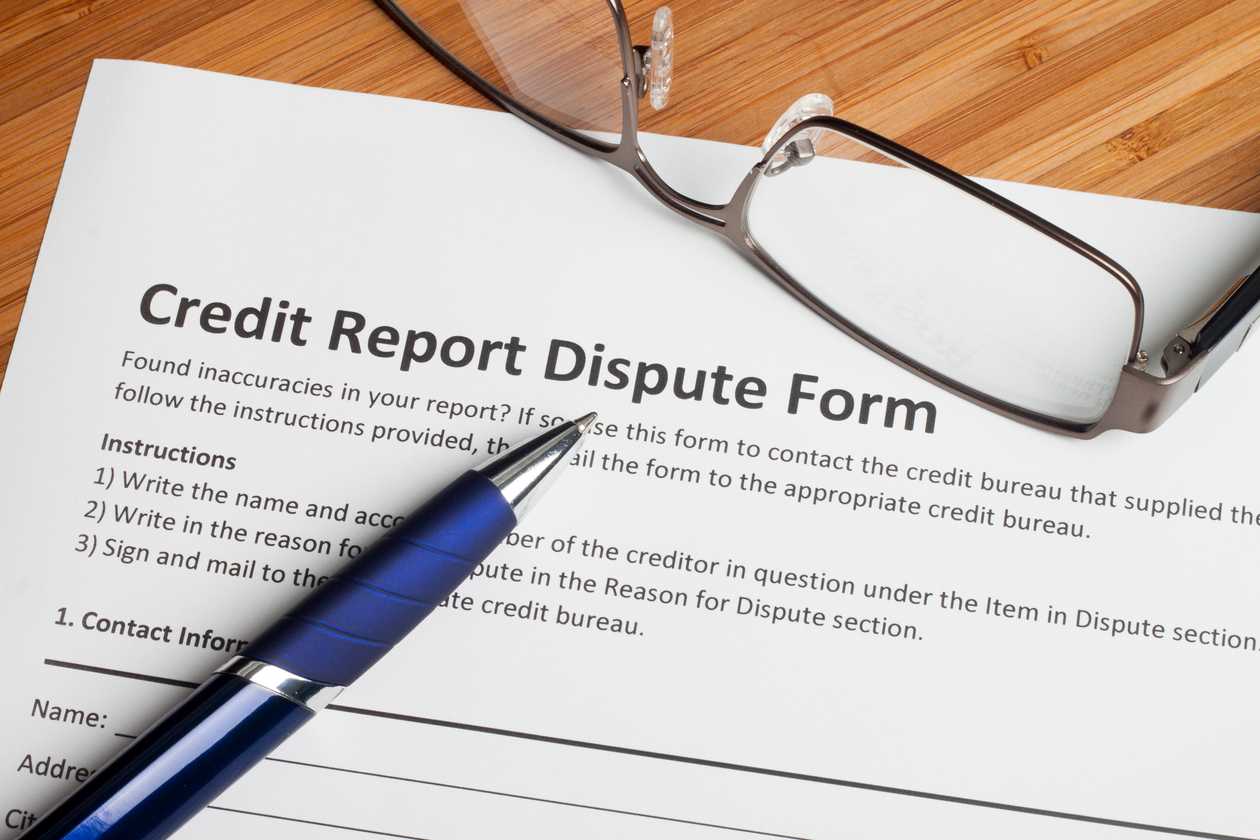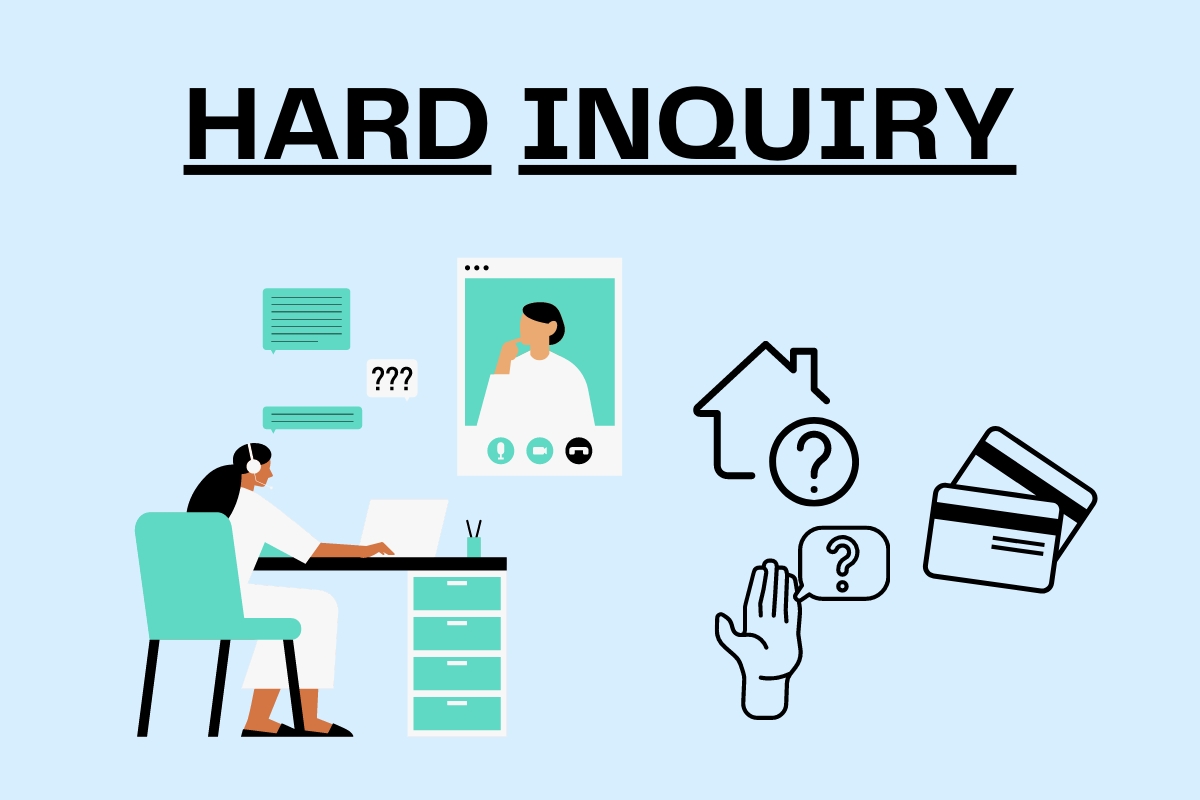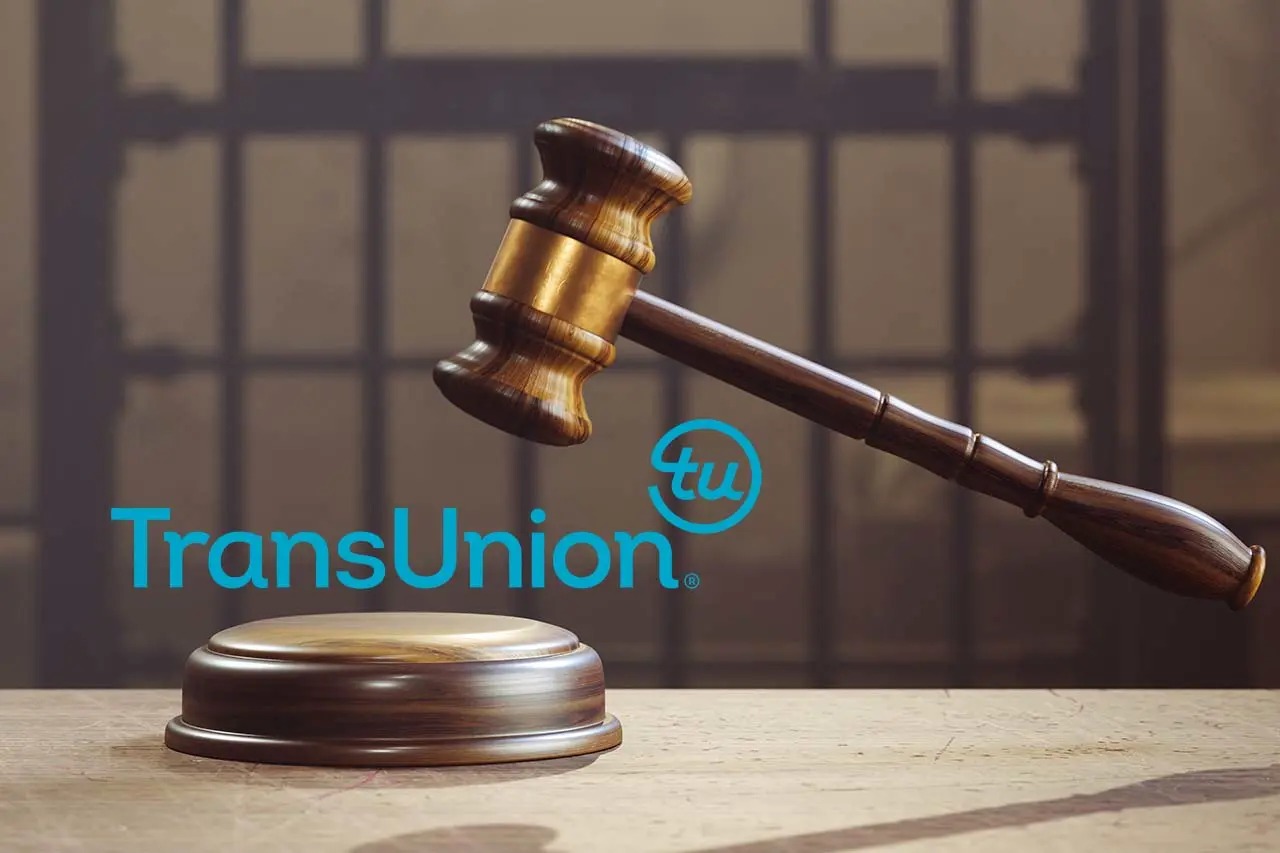

Finance
How To Dispute Hard Credit Inquiry
Modified: March 5, 2024
Learn how to dispute hard credit inquiries and improve your financial health. Get expert tips and guidance on managing your finances effectively.
(Many of the links in this article redirect to a specific reviewed product. Your purchase of these products through affiliate links helps to generate commission for LiveWell, at no extra cost. Learn more)
Table of Contents
**
Introduction
**
Are you concerned about the impact of hard credit inquiries on your credit score? In the world of personal finance, maintaining a healthy credit profile is crucial for accessing favorable loan terms and financial opportunities. However, when unauthorized or inaccurate hard credit inquiries appear on your credit report, they can potentially harm your creditworthiness. In this comprehensive guide, we will delve into the essential steps for disputing hard credit inquiries, empowering you to take control of your credit health.
Navigating the realm of credit inquiries can be complex, but with the right knowledge and approach, you can effectively address discrepancies and safeguard your financial standing. Whether you're aiming to secure a mortgage, auto loan, or credit card, understanding the intricacies of hard credit inquiries is a fundamental aspect of managing your credit responsibly. Let's embark on this enlightening journey to unravel the nuances of disputing hard credit inquiries and reclaiming your financial peace of mind.
Throughout this guide, we will explore the process of disputing hard credit inquiries, from understanding the nature of these inquiries to gathering evidence and engaging with the credit bureaus. By the end of this insightful journey, you will be equipped with the knowledge and confidence to challenge erroneous credit inquiries and uphold the accuracy and integrity of your credit report. Let's embark on this empowering expedition to safeguard your financial well-being and assert your rights as a consumer in the realm of credit reporting.
Understanding Hard Credit Inquiries
Understanding Hard Credit Inquiries
Before delving into the process of disputing hard credit inquiries, it’s essential to grasp the fundamental concept of what constitutes a hard inquiry and its significance in the realm of credit reporting. A hard credit inquiry, also known as a hard pull, occurs when a potential lender or creditor reviews your credit report as part of their decision-making process regarding a credit application. This type of inquiry typically takes place when you apply for a mortgage, auto loan, credit card, or other forms of credit.
Unlike soft inquiries, which occur when you check your own credit report or when a potential employer conducts a background check, hard inquiries have the potential to impact your credit score. Each hard inquiry can cause a temporary dip in your score, as it signifies that you may be taking on new debt. While the impact of a single hard inquiry is relatively minimal, multiple inquiries within a short timeframe can raise concerns among lenders and potentially lower your credit score.
It’s important to note that unauthorized or inaccurate hard inquiries can have detrimental effects on your creditworthiness. Whether due to identity theft, credit application errors, or other factors, these erroneous inquiries can tarnish your credit report and hinder your financial opportunities. By understanding the nature and implications of hard credit inquiries, you can proactively identify discrepancies and take the necessary steps to address them effectively.
As we proceed on this enlightening journey, we will delve deeper into the proactive measures you can take to monitor and dispute hard credit inquiries, empowering you to uphold the accuracy and integrity of your credit report.
Checking Your Credit Report
Checking Your Credit Report
Regularly reviewing your credit report is a proactive habit that can help you identify any unauthorized or inaccurate hard credit inquiries. By obtaining a copy of your credit report from each of the three major credit bureaus—Equifax, Experian, and TransUnion—you can gain comprehensive insights into your credit history and detect any irregularities that may require further investigation.
Under the Fair Credit Reporting Act (FCRA), you are entitled to request a free copy of your credit report from each of the three credit bureaus once every 12 months through AnnualCreditReport.com. Additionally, in response to the COVID-19 pandemic, the three major credit bureaus are offering free weekly credit reports through April 20, 2022, providing consumers with increased access to their credit information during these challenging times.
When reviewing your credit report, pay close attention to the section that lists inquiries made into your credit history. Hard inquiries should be clearly delineated, indicating the date they were made and the entity that requested them. If you identify any inquiries that you did not authorize or that seem unfamiliar, it’s crucial to take prompt action to address these discrepancies.
Furthermore, leveraging the convenience of credit monitoring services can facilitate ongoing vigilance over your credit report, enabling you to receive real-time alerts regarding any new inquiries or significant changes to your credit profile. By staying proactive and attentive to the details of your credit report, you can promptly identify any unauthorized hard inquiries and initiate the dispute resolution process to rectify these inaccuracies.
As we proceed on this journey toward safeguarding your credit health, the next steps will involve gathering evidence to support your dispute and engaging with the credit bureaus to rectify any erroneous hard inquiries that may be impacting your credit report.
Gathering Evidence
When disputing hard credit inquiries, gathering compelling evidence is paramount to substantiating your claim and compelling the credit bureaus to conduct a thorough investigation. Begin by documenting any documentation related to the unauthorized or inaccurate inquiries, such as credit denials, application records, or correspondence with the entities that purportedly made the inquiries.
It’s advisable to retain copies of any correspondence or documentation that supports your assertion that the hard inquiries in question were not authorized. This may include emails, letters, or online application records that demonstrate the absence of your consent for the inquiries. Additionally, if you have been a victim of identity theft, documenting the steps you have taken to report and address the theft can further bolster your case.
Moreover, maintaining a detailed record of your credit report, including the specific dates and entities associated with the disputed inquiries, will serve as a valuable reference point throughout the dispute resolution process. By meticulously organizing and preserving this evidence, you can enhance the effectiveness of your dispute and underscore the legitimacy of your claim.
Furthermore, if you have engaged in any communication with the entities responsible for the unauthorized inquiries, such as disputing the accuracy of the inquiries directly with the creditors or lenders, retaining records of these interactions can provide additional support for your dispute. Any written responses from the entities acknowledging the erroneous nature of the inquiries can serve as compelling evidence in substantiating your claim.
As we venture further into the process of disputing hard credit inquiries, the next crucial step involves contacting the credit bureaus to initiate the formal dispute process and present the evidence you have meticulously gathered. Armed with a thorough compilation of evidence, you are poised to navigate the dispute resolution process with confidence and assert your rights as a consumer in the realm of credit reporting.
Contacting the Credit Bureau
Once you have gathered compelling evidence to support your dispute of hard credit inquiries, the next pivotal step is to initiate contact with the credit bureaus to formally challenge the inaccuracies on your credit report. You can submit your dispute online, via mail, or by phone, depending on your preference and the options provided by the respective credit bureaus.
When submitting your dispute, it’s essential to craft a clear and concise explanation of the unauthorized or inaccurate hard inquiries, accompanied by the evidence you have meticulously gathered. Clearly delineate the specific inquiries in question, providing detailed information regarding their unauthorized nature and the supporting documentation that substantiates your claim. By articulating your case with precision and providing comprehensive evidence, you enhance the likelihood of a thorough investigation by the credit bureaus.
Upon receiving your dispute, the credit bureaus are mandated to conduct an investigation within 30 days, during which they will engage with the entities that allegedly made the inquiries to verify their accuracy. As part of this process, the credit bureaus will furnish the entities with the evidence you have presented, prompting them to substantiate the legitimacy of the inquiries. If the entities fail to provide conclusive evidence validating the inquiries, the credit bureaus are obligated to remove them from your credit report.
Throughout this process, maintaining detailed records of your communications with the credit bureaus, including any correspondence and dispute submissions, is crucial for tracking the progress of your dispute and ensuring that it receives the attention it warrants. Additionally, remaining vigilant for any updates or requests for further information from the credit bureaus will enable you to actively participate in the resolution of the dispute.
As we progress through the dispute resolution journey, the forthcoming section will delve into the importance of following up on your dispute and understanding the potential outcomes, equipping you with the knowledge to navigate this process with confidence and tenacity.
Following Up
After initiating the dispute of hard credit inquiries and engaging with the credit bureaus, it’s crucial to maintain proactive communication and vigilance by following up on the progress of your dispute. This proactive approach ensures that your dispute receives the attention it warrants and allows you to address any potential challenges or requests for further information promptly.
Following the submission of your dispute, the credit bureaus are required to provide a written response detailing the results of their investigation within 30 days. Upon receiving this response, carefully review the outcome to ascertain whether the unauthorized or inaccurate hard inquiries have been rectified. If the inquiries have been removed from your credit report, it signifies a successful resolution of your dispute, contributing to the accuracy and integrity of your credit profile.
However, in instances where the credit bureaus have not taken corrective action or have deemed the disputed inquiries as valid, it’s imperative to persist in advocating for the rectification of your credit report. This may entail providing additional evidence, escalating the dispute to higher levels within the credit bureau’s hierarchy, or seeking legal counsel to explore further courses of action.
Throughout this process, maintaining meticulous records of all communications, responses, and outcomes is paramount for effectively navigating the dispute resolution journey. By documenting the steps taken, the responses received, and any pertinent developments, you can assert your rights as a consumer and demonstrate the diligence with which you have pursued the rectification of inaccuracies on your credit report.
Furthermore, leveraging the guidance of consumer advocacy organizations or legal professionals specializing in credit reporting can provide invaluable support in advocating for the accuracy of your credit report and exploring additional avenues for dispute resolution.
As we culminate this enlightening journey through the process of disputing hard credit inquiries, it’s essential to recognize the significance of maintaining ongoing vigilance over your credit report and promptly addressing any discrepancies that may arise in the future. By embracing a proactive and informed approach to credit management, you empower yourself to safeguard your financial well-being and uphold the accuracy of your credit profile.
Conclusion
Congratulations on embarking on this empowering journey to understand and dispute hard credit inquiries. By delving into the intricacies of credit reporting and equipping yourself with the knowledge and strategies to challenge inaccuracies on your credit report, you have taken a proactive step toward safeguarding your financial well-being and asserting your rights as a consumer.
Throughout this comprehensive guide, we have navigated the multifaceted process of disputing hard credit inquiries, from understanding their impact on your credit score to gathering compelling evidence and engaging with the credit bureaus to rectify inaccuracies. By familiarizing yourself with the nuances of hard inquiries and the dispute resolution process, you have fortified your ability to identify and address unauthorized or inaccurate inquiries that may compromise the integrity of your credit report.
As you proceed on your journey toward financial empowerment, it’s essential to maintain ongoing vigilance over your credit report and promptly address any discrepancies that may arise. By staying attuned to the details of your credit profile and leveraging the resources and protections afforded by consumer rights legislation, you can uphold the accuracy and integrity of your credit report, thereby enhancing your creditworthiness and financial opportunities.
Remember that you are not alone in this endeavor. Consumer advocacy organizations, legal professionals specializing in credit reporting, and the regulatory framework established by the Fair Credit Reporting Act are valuable resources that can provide guidance and support as you navigate the intricacies of credit dispute resolution.
By embracing a proactive and informed approach to credit management, you empower yourself to navigate the complexities of credit reporting with confidence and tenacity. Your commitment to upholding the accuracy of your credit report reflects your dedication to financial responsibility and resilience in the face of potential inaccuracies or unauthorized activities.
As you apply the insights gained from this guide to your personal financial journey, may you navigate the realm of credit reporting with astuteness and determination, ensuring that your credit profile accurately reflects your creditworthiness and financial integrity.
Armed with the knowledge and strategies elucidated in this guide, you are poised to confront the challenges of credit reporting with resilience and advocate for the accuracy and fairness that underpin the realm of credit management. Your proactive stance in disputing hard credit inquiries exemplifies your commitment to financial empowerment and underscores your capacity to assert your rights as a consumer in the dynamic landscape of personal finance.














